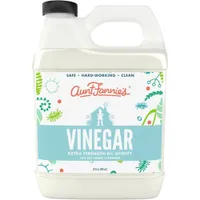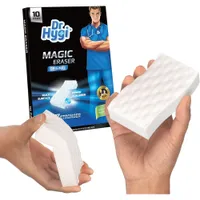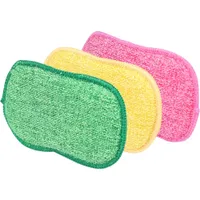How to get rid of hard water stains on glass – 6 expert-recommended tips
Are hard water stains ruining the appeal of your glass? Here's how to keep them clean and squeaky clean

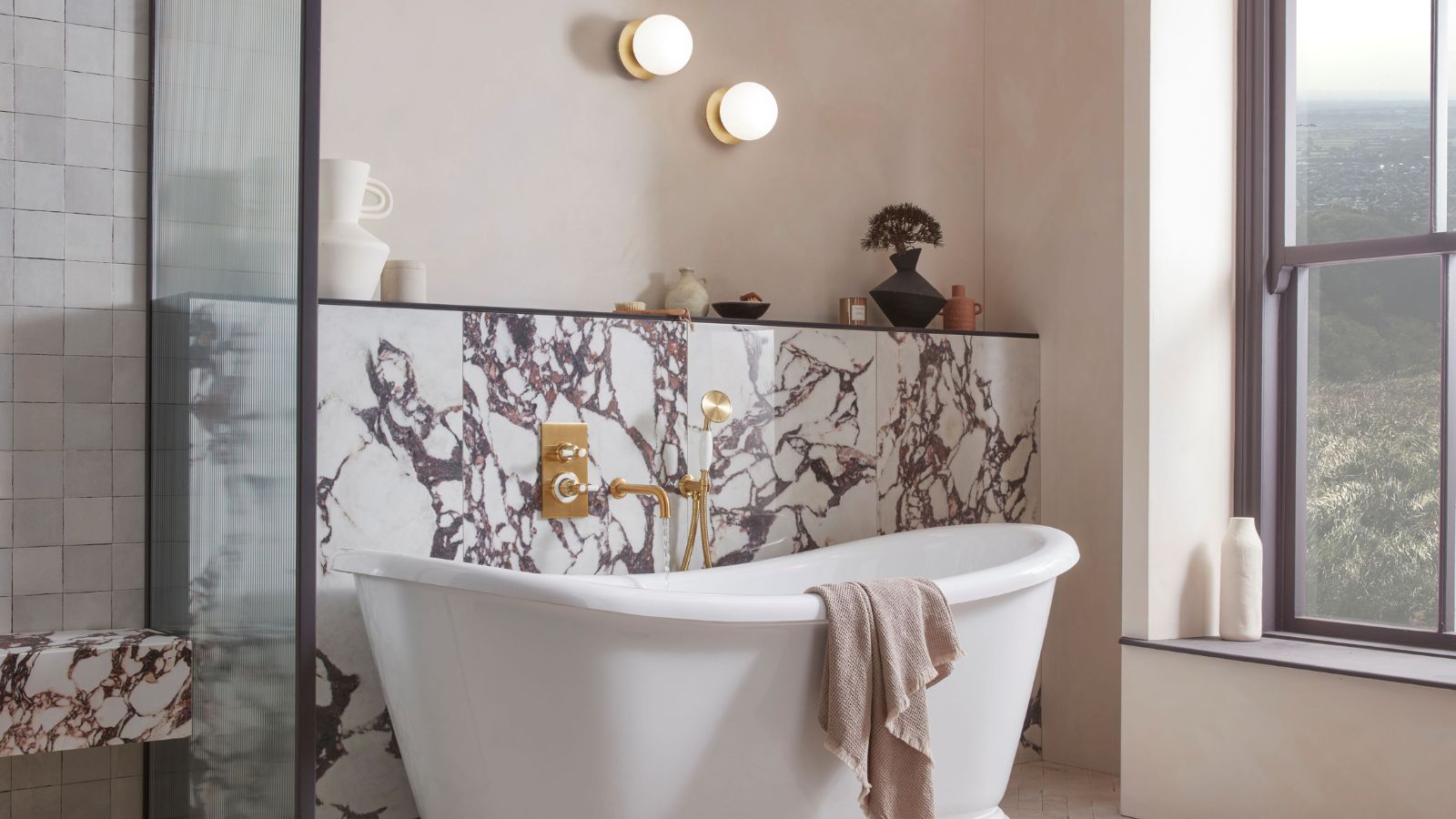
Hard water stains are caused by minerals in the water that can leave deposits on glass – the unappealing appearance of these can make your glass look unclean and worn out. Luckily, regular cleaning of glass with specialized methods to tackle these deposits can leave it looking revitalized.
Depending on the water in your area, you may frequently notice a build-up of hard water stains on your glass windows and shower doors. Hard water can also make itself known by making glasses go cloudy glasses in the dishwasher.
With the right DIY cleaning techniques and preventative measures, you can keep your glass surfaces looking pristine and free of hard water stains hampering its appeal.
How to get rid of hard water stains on glass
'Cleaning glass to achieve a streak-free, spotless finish can indeed be a challenging task. The transparency of glass tends to magnify imperfections, making even the smallest streaks or water stains noticeable,' says Karina Toner, operations manager at Spekless Cleaning. 'Achieving that crystal-clear look requires attention to detail and the right cleaning techniques.'
1. Vinegar and water
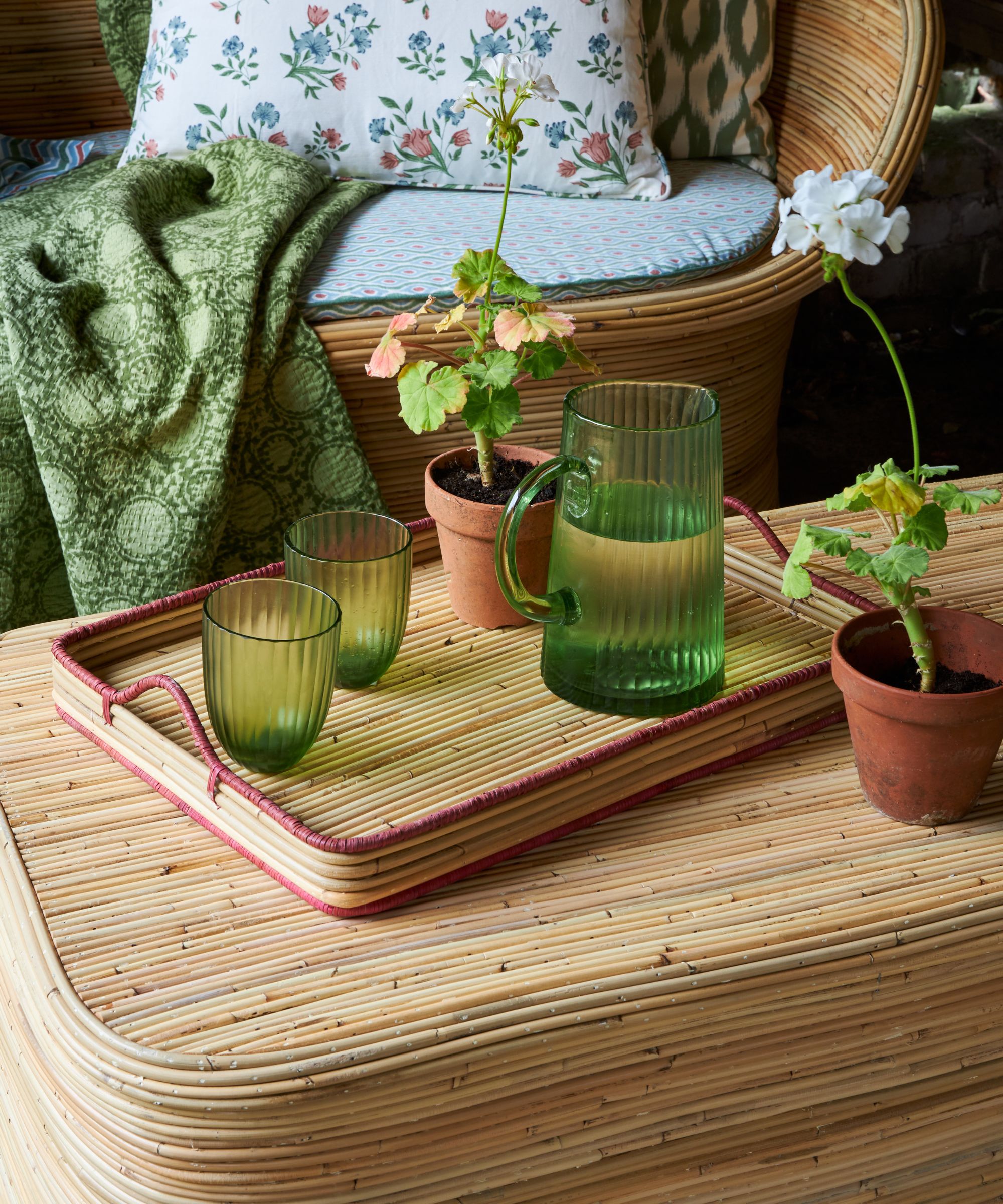
'Vinegar is an acid that helps break down mineral deposits,' explains Jake Eicher at Portella. 'Mix equal parts of white vinegar and water in a sprayer. Spray the solution onto the stained areas and leave it for a few minutes. This allows the vinegar to penetrate and loosen the mineral deposits.'
When applying the vinegar-water solution, start from the top of the glass and work your way down to prevent streaks and ensure even coverage.
The tougher the stain, the longer it is recommended to leave the mixture on the glass – leaving it on for around thirty minutes should usually do the trick.
Design expertise in your inbox – from inspiring decorating ideas and beautiful celebrity homes to practical gardening advice and shopping round-ups.
'For smaller items like glassware or showerheads, soak them in a bowl or basin filled with undiluted white vinegar for a few hours or overnight,' recommends Angela Rubin from Hellamaid.
'After the solution has done its work, gently rub the stains with a soft cloth or sponge,' continues Jake Eicher. 'For more stubborn stains, applying a bit more pressure or using a non-abrasive scrubber may be necessary.'
Remember, regular maintenance beats a full-scale cleaning operation – wiping down
glass surfaces with a vinegar solution once a week can prevent hard water stains
from taking hold in the first place.
6% Distilled White Cleaning Vinegar | $11.99 at Amazon
2. Lemon juice
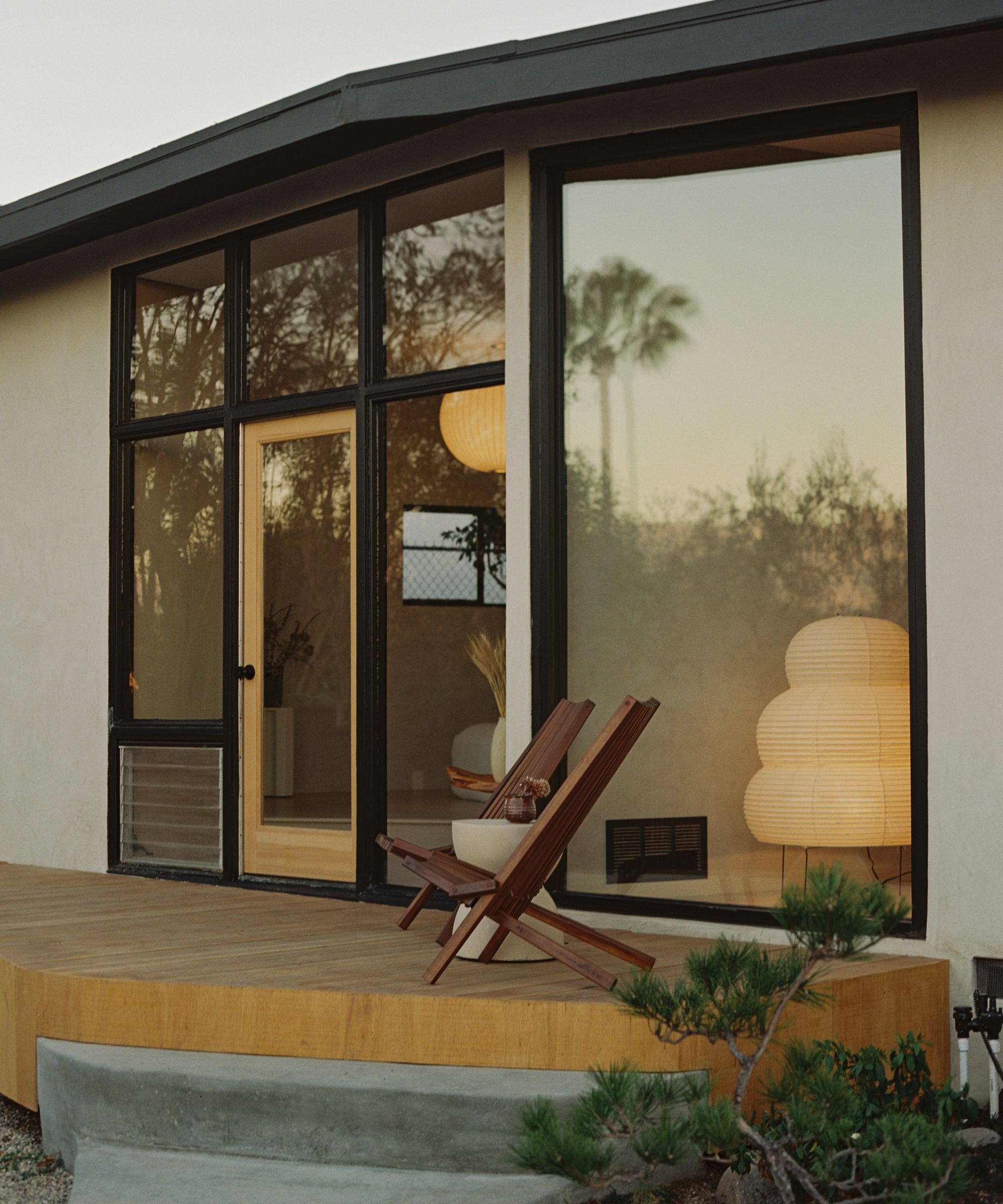
Lemon juice contains citric acid, a natural cleaner, that can break down mineral deposits.
'Dip a cloth or sponge in fresh lemon juice (or use lemon juice concentrate) and rub it onto the hard water stains,' advises Angela Rubin. 'Let it sit for a few minutes before wiping clean. The natural acidity of lemon helps dissolve the mineral deposits.'
3. Baking soda paste
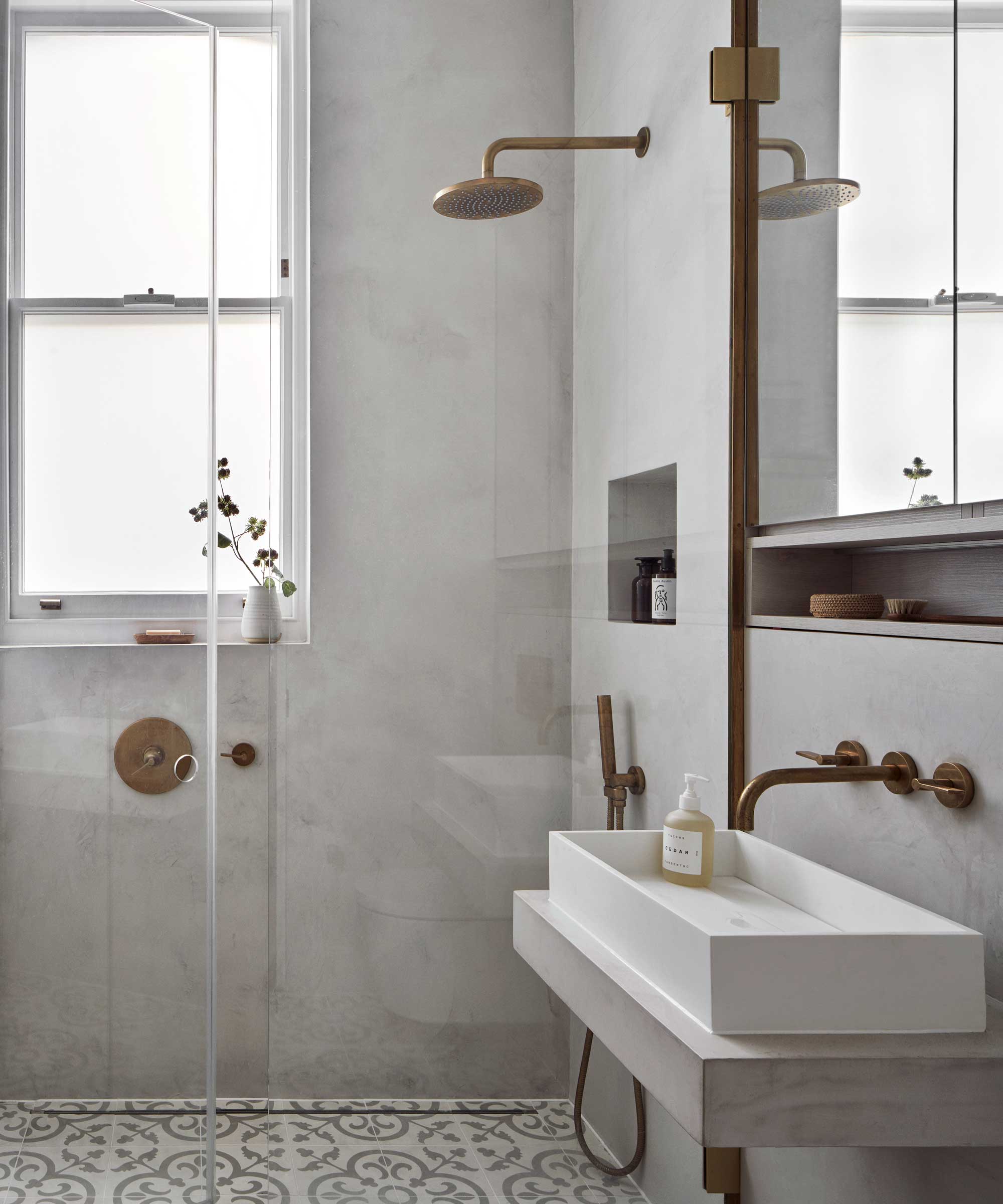
For a more targeted solution, a cleaning with baking soda and water can be a highly effective method to remove hard water stains from glass. The mild abrasive nature of baking soda helps to lift the stains.
Make a paste by mixing baking soda with a small amount of water. Apply the paste to the stains and let it sit for a few minutes before gently scrubbing with a soft, non-abrasive sponge or cloth. Then, rinse thoroughly.
4. Shaving cream solution
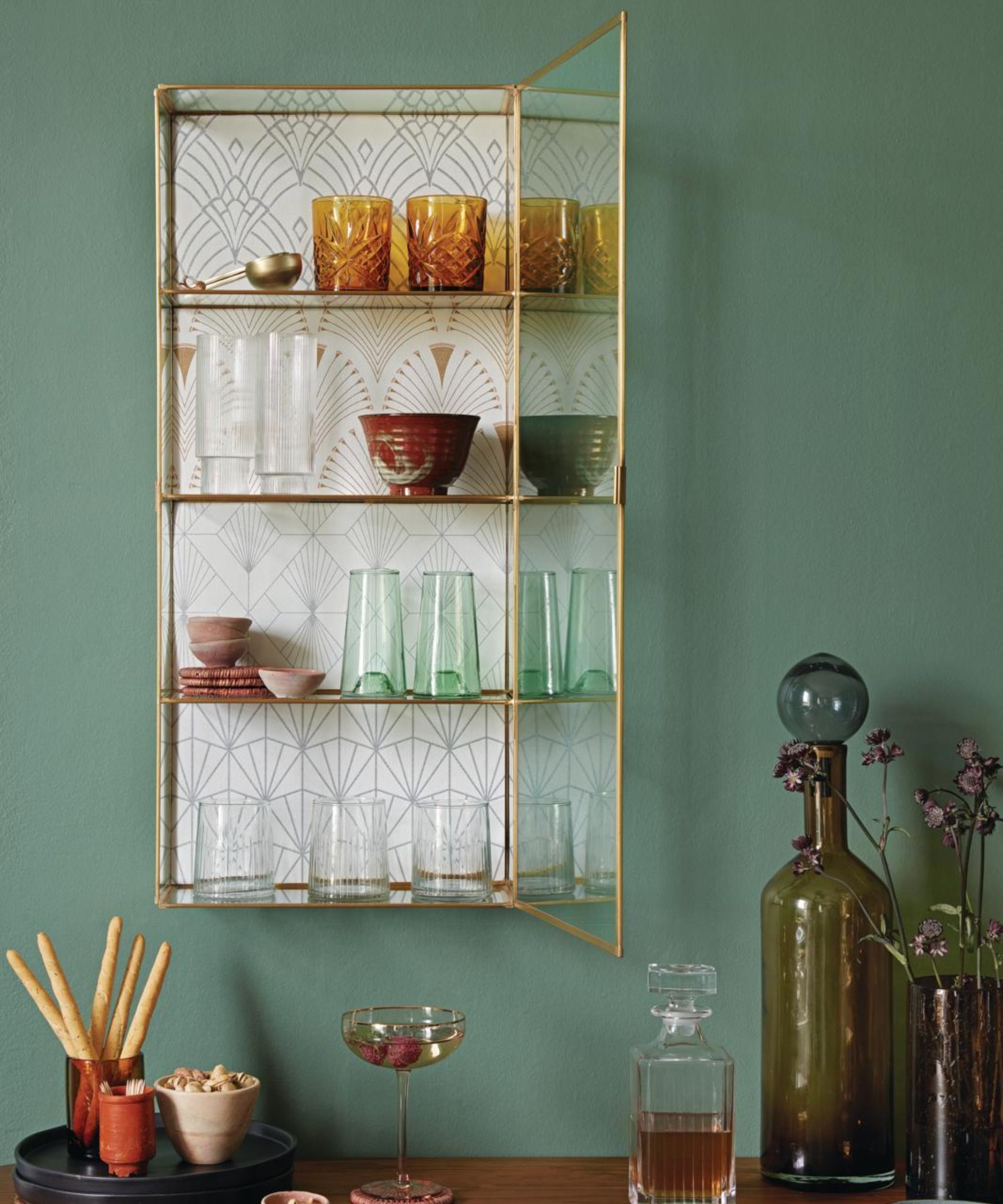
'A bit unconventional but it works! The ingredients in the shaving cream can help break down and loosen the mineral deposits,' explains Karina Toner.
'Apply a layer of non-gel shaving cream to the glass surface with hard water stains. Allow it to sit for a few minutes.
'Wipe away the cream with a damp cloth, and the stains should come off with it.'
5. Denture tablets
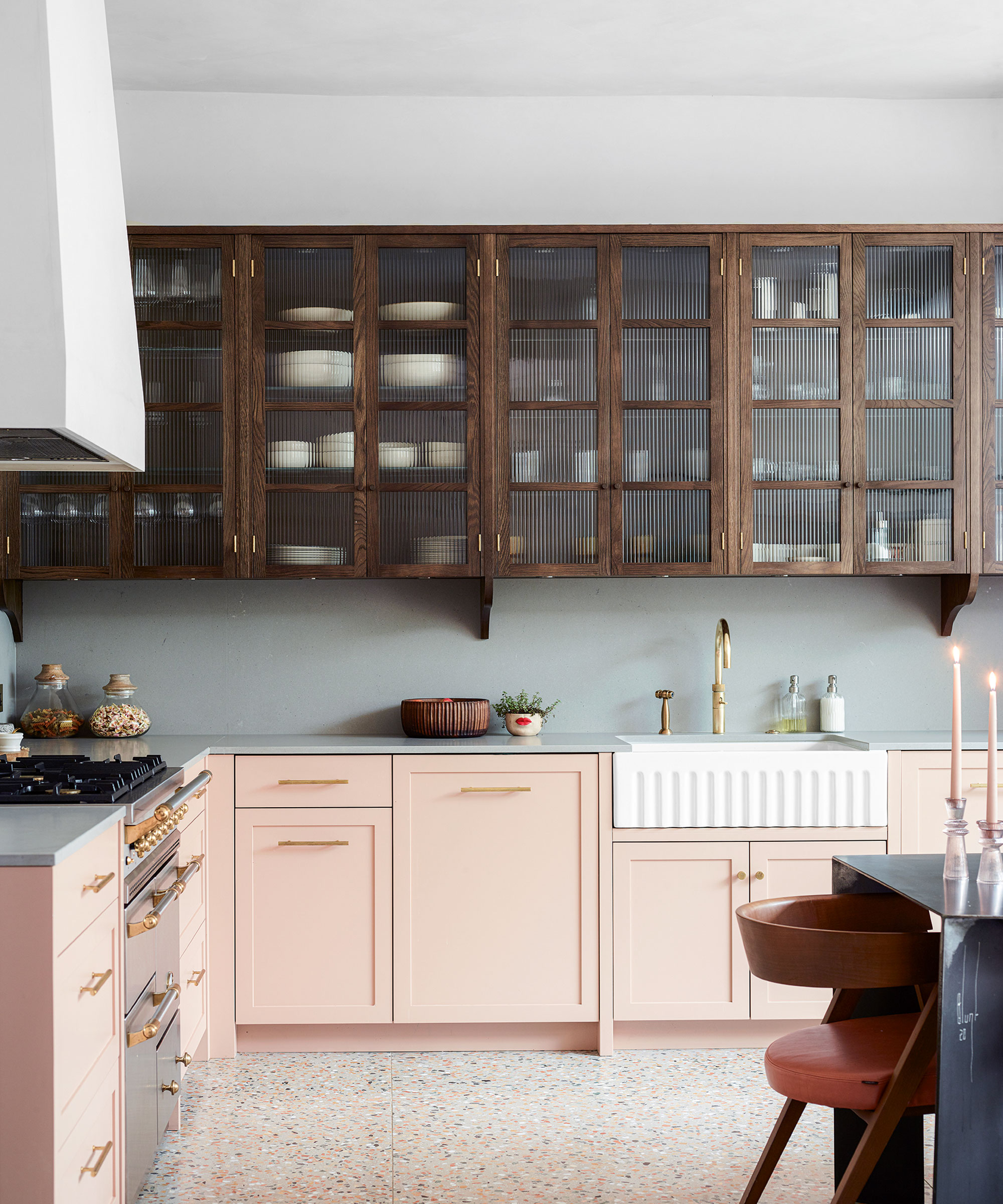
'Here’s another out-of-the-ordinary cleaning technique: drop a couple of denture cleaning tablets into a bowl of warm water,' says Karina Toner. 'The effervescent action helps break down mineral deposits.
'Once they dissolve, apply the solution to the hard water stains on the glass. After a few minutes, scrub with a soft brush or cloth and rinse thoroughly.'
6. Commercial hard water stain remover
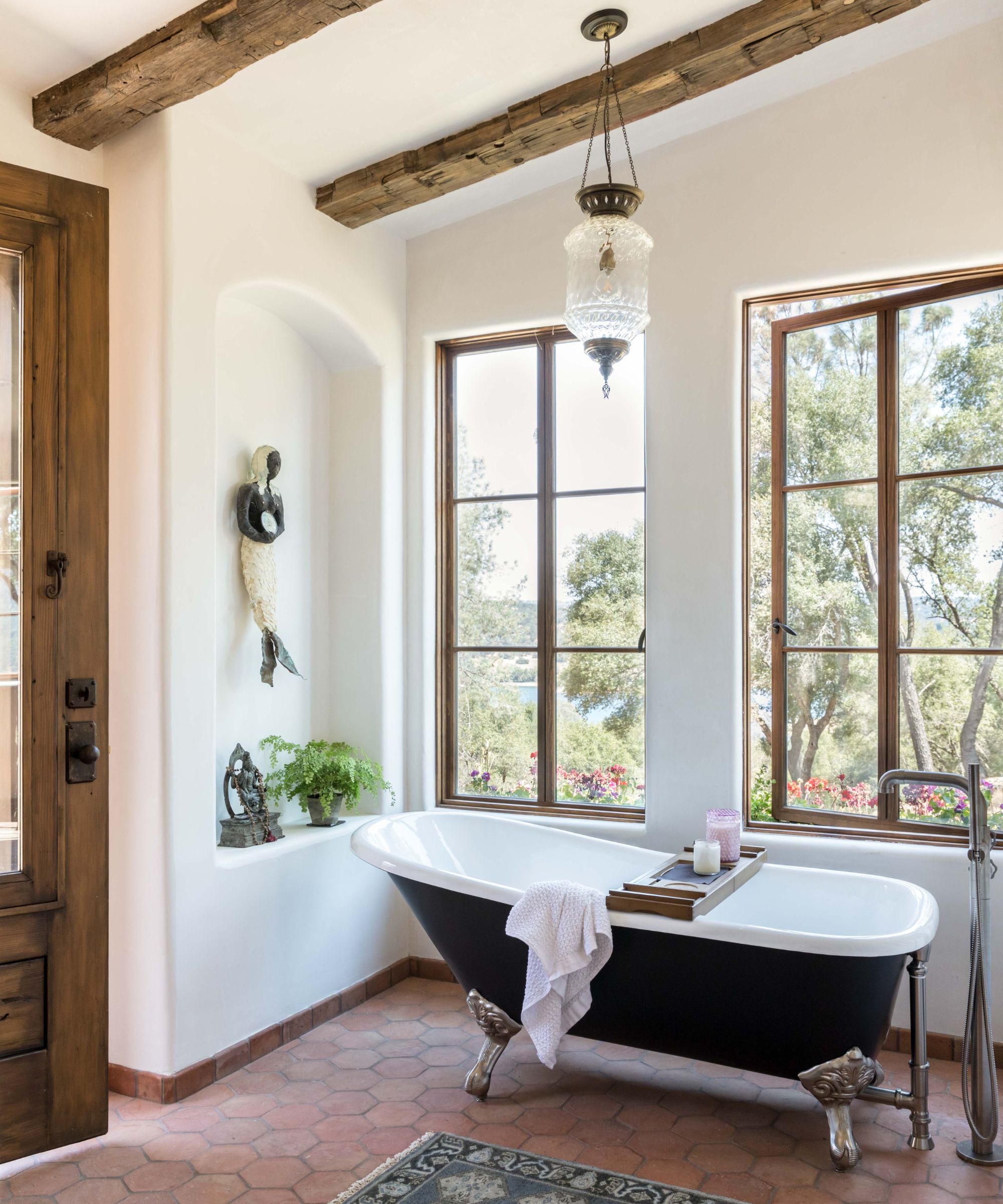
'Several commercial products are designed specifically to remove hard water stains from glass,' says Karina Toner. 'Make sure to thoroughly read through and follow the product instructions for optimal results.'
You can use commercial limescale remover or glass cleaner, but ensure the product is suitable for the type of glass you're cleaning. Use a soft, lint-free cloth and ensure proper ventilation during use.
Choose the right cleaning instrument
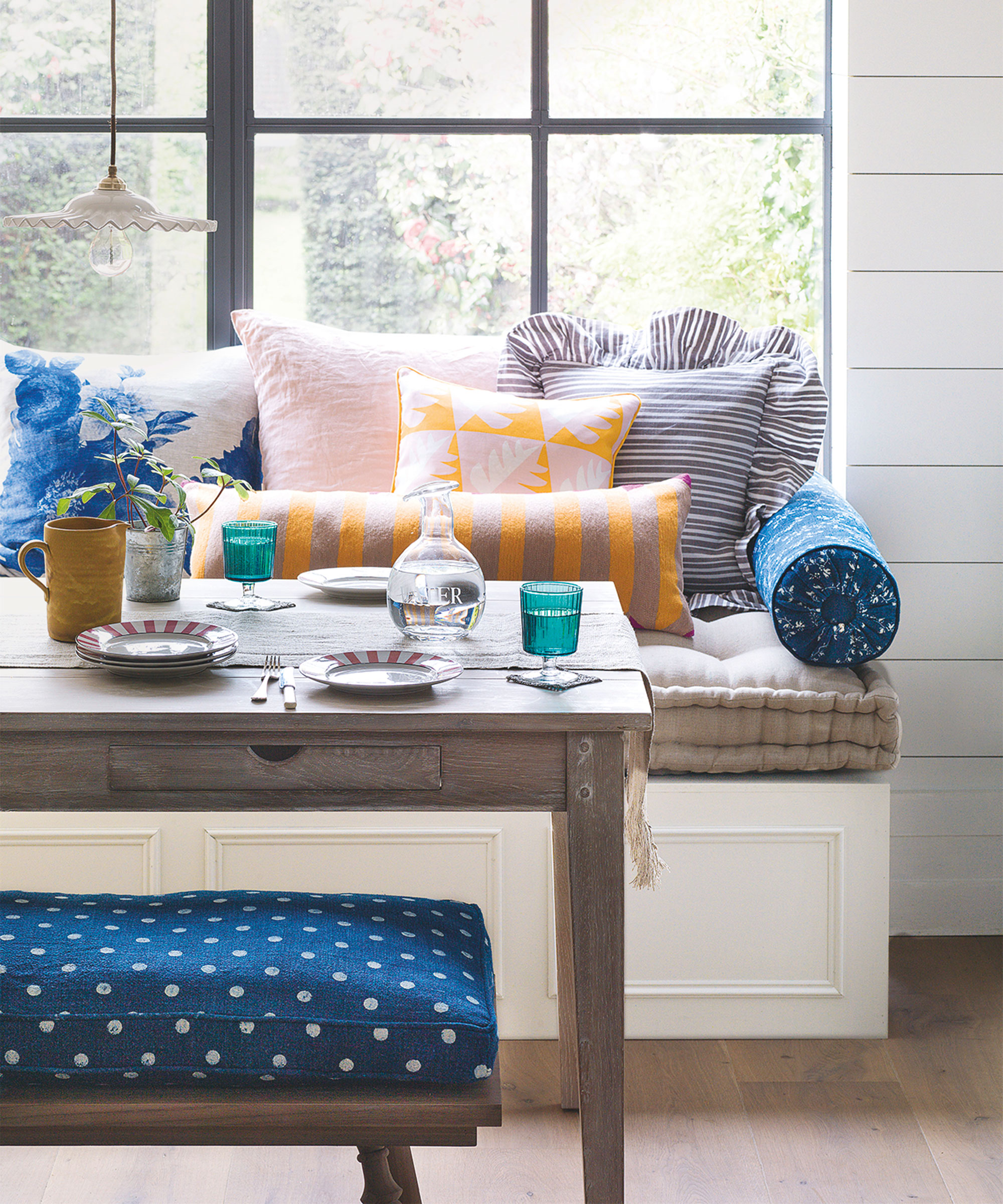
'Depending on the stubbornness of the stain, you can either wipe it away with a clean cloth or paper towels for less severe stains or gently use a scrubbing sponge or a razor blade at a 45-degree angle for tougher stains,' recommends Hashi Mohamed, president of Ivy Cleans.
You could also use a specialized eraser pad designed for removing hard water stains from glass surfaces.
'Be cautious not to scratch the glass, and keep the surface lubricated with more cleaning product as needed during the process,' warns Hashi Mohamed.
'After removing the stain, dry it with a clean, dry cloth to prevent new water spots from forming.' We recommend these MR.SIGA microfiber cloths, from Amazon.
Magic Erasers by Dr.Hygi | £8.99 at Amazon
Kitchen Non-Scratch Scrub Sponges | Was $13.99, now $9.99
FAQs
How can you prevent buildup of hard water stains on glass?
'To avoid recurrent hard water stains, consider using a water softener or installing a water filter,' recommends Karina Toner, operations manager at Spekless cleaning. 'Regularly wipe down glass surfaces after use to prevent mineral deposits from settling.'
When cleaning glass, use distilled water instead of tap water to reduce the mineral content that causes hard water stains. Installing a water-softening system can help reduce mineral buildup.
You can also apply a preventive coating to glass, such as a rain repellent or glass sealant to minimize future hard water stains and make cleaning easier.
What should you avoid when cleaning glass?
'Steer clear of very harsh chemicals when cleaning glass,' warns Bella Zinti at The Homey Space. 'While they might seem effective, they can etch the glass and cause irreversible damage, not to mention their potential to harm adjacent materials and your skin or respiratory system upon contact or inhalation.'
'The chemistry at play is that hard water contains high amounts of calcium and magnesium, which leave crystalline deposits after evaporating,' explains Adrian Pedraza, owner of The California Home Buyer. 'Over time, these mineral traces become ingrained in the glass's porous surface.
'Overall, vinegar and baking soda work best to dissolve those hard water crystals so they can be wiped away. With routine cleansing and potential water treatment, glass fixtures and appliances should stay looking their best.'
Make it a habit to regularly wipe down glass surfaces in bathrooms and kitchens to prevent the buildup of water spots. Consistency in maintenance is crucial for keeping your glass surfaces looking clean and clear.

Lola Houlton is a news writer for Homes & Gardens. She has been writing content for Future PLC for the past six years, in particular Homes & Gardens, Real Homes and GardeningEtc. She writes on a broad range of subjects, including practical household advice, recipe articles, and product reviews, working closely with experts in their fields to cover everything from heating to home organization through to house plants. Lola is a graduate, who completed her degree in Psychology at the University of Sussex. She has also spent some time working at the BBC.
